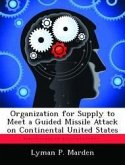The current international security environment is characterized by numerous complex challenges and decentralized transnational threats. To meet these emerging threats, the most recent Quadrennial Defense Review (QDR) calls for an increased capability to train, equip, and advise indigenous forces as a means to improve the internal security and stability of other nations. This thesis analyzes the capacity of emerging US Air Force advisory program doctrine, team member selection, and training to meet future national security requirements. American advisory programs to the Philippines and El Salvador provide historical evidence for the study. In recent years, the Air Force foreign internal defense (FID) mission has evolved significantly, and emerging doctrine promises a holistic approach to advisory programs. Air Force organization and training have evolved to resemble those of Army and Marine Corps units tasked with FID, and all three services have made significant progress toward an integrated effort.








